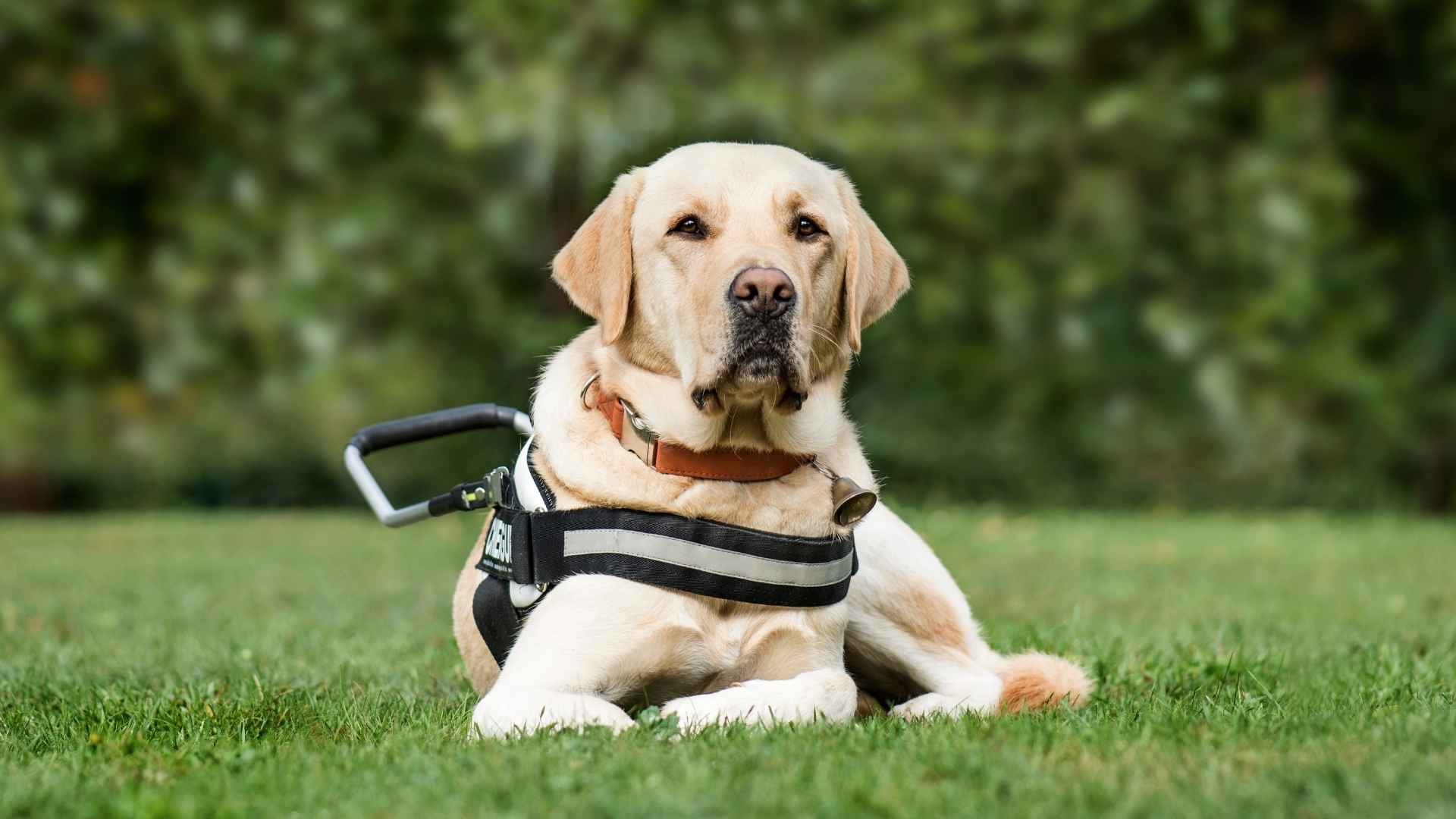Living with post-traumatic stress disorder (PTSD) or severe anxiety can feel overwhelming at times. For people suffering from these conditions, everyday life can include panic attacks, self-harming behaviors, or struggles with basic routines.
Sadly, around 3.9% of the world’s population has suffered from PTSD at some point in their lives. While therapy, medication, and support from family members can help, a psychiatric service dog can be an incredibly helpful companion that offers both emotional support and practical assistance.
Unlike regular emotional support animals, psychiatric service dogs are specially trained through structured service dog training to perform tasks that ease PTSD symptoms.
They can interrupt self-harming behaviors, create space in public areas, provide deep pressure therapy during panic attacks, and even help military veterans suffering from flashbacks regain their confidence. Through unconditional love, they give their owners more independence and a better quality of life.
In this blog, we’ll explore the best service dog breeds for PTSD that make amazing companions.
Best Service Dog Breeds For PTSD
1. Golden Retriever
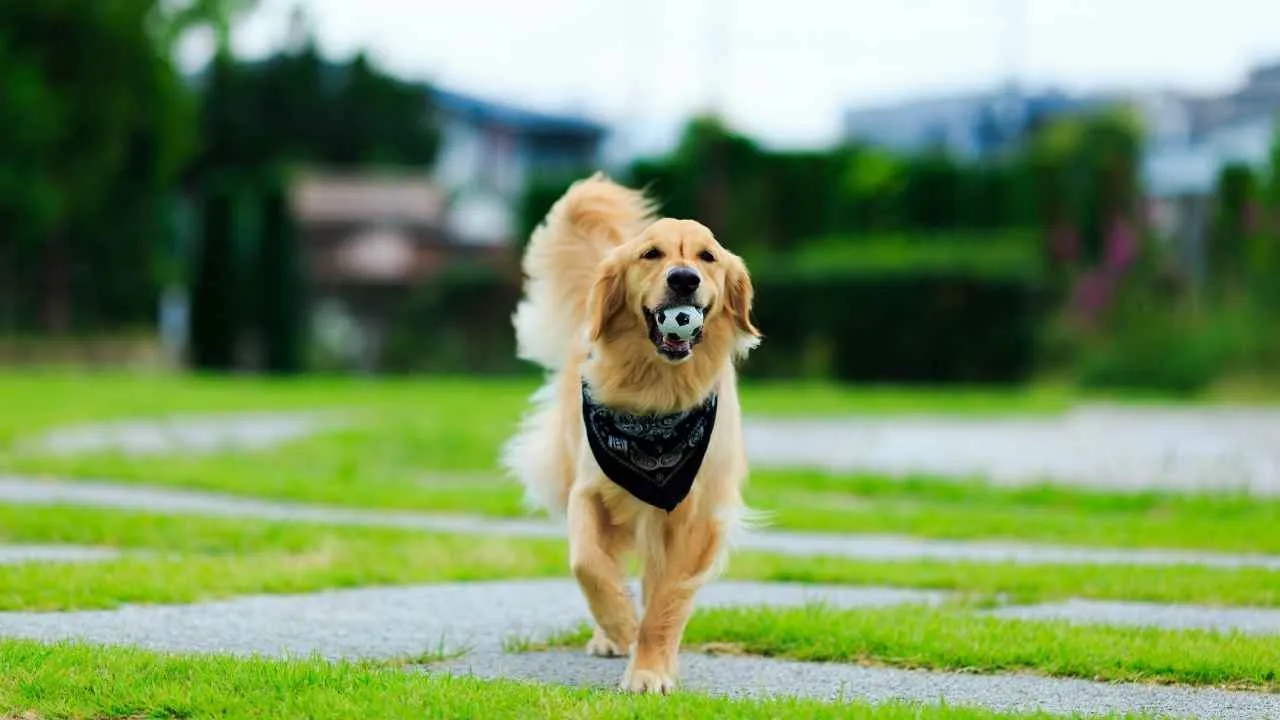
Golden retrievers are one of the most popular dog breeds in the US, admired for their beautiful golden coats, medium size (55–75 pounds, 21–24 inches tall), and gentle, easygoing nature.
They have a sturdy yet athletic build, a broad head with expressive eyes, and a naturally cheerful personality that makes them wonderful around children, family, and even other pets.
Goldens are highly social and love being around people, which is why they’re often seen as the perfect furry friend for both companionship and service work.
Why Golden Retrievers Make Great Service Dogs:
They’re naturally focused and easily trained, making dog training for complex service tasks smoother.
Their calm temperament helps prevent them from becoming easily distracted in public areas.
Golden retrievers form deep bonds and provide unconditional love, essential for people suffering from mental health challenges.
They have the confidence to handle service work in busy environments while staying gentle and approachable.
Their intelligence and willingness to please make them one of the best psychiatric service dogs.
2. Labrador Retriever

The sweet-faced and lovable Labrador retriever is one of America’s most popular dog breeds, year after year, as mentioned by PetMD. Known for their friendly and outgoing personalities, Labs make wonderful family companions who are just as comfortable playing with children as they are relaxing with their owners.
They’re medium-to-large dogs, typically standing 21.5 to 24.5 inches tall and weighing 55 to 80 pounds, with a dense coat that comes in yellow, black, or chocolate. Labradors have an athletic build, a warm and kind expression, and the trademark “otter tail” that always seems to wag with excitement.
Naturally sociable and confident, they thrive around other pets, other animals, and humans, making them one of the most approachable and naturally friendly breeds for service work.
Why Labrador Retrievers Make Great Service Dogs:
They’re highly motivated by food, toys, and praise, making dog training for service tasks efficient and effective.
Their soft mouths allow them to retrieve fragile objects like phones or keys without causing damage, which is helpful for those with mobility challenges.
Labradors maintain a balanced energy level, staying engaged without being overly active or easily distracted.
They remain calm and confident in unfamiliar environments, including busy public areas or around loud noises.
As a well-known and non-intimidating breed, they are easily accepted in public places, making them ideal service dogs for veterans or individuals with PTSD symptoms.
3. German Shepherd
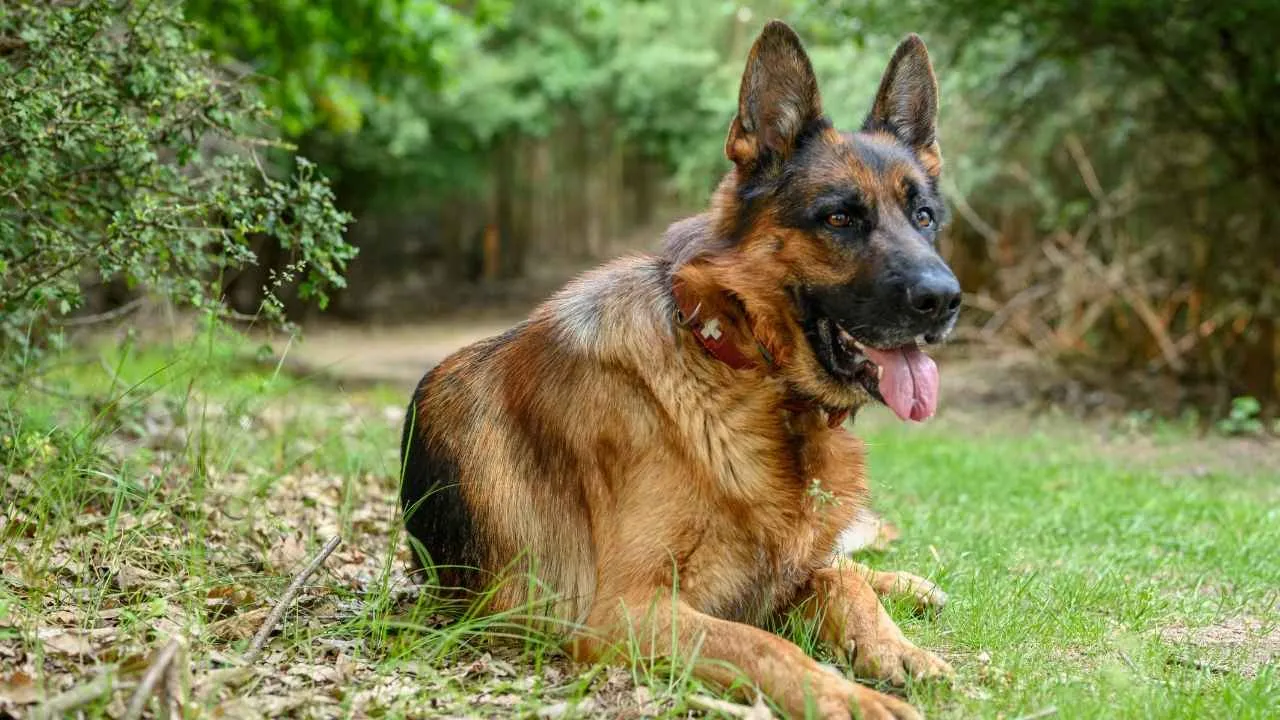
The German Shepherd is a strong, intelligent, and versatile dog breed developed in Germany from traditional herding dogs. Known for their athletic build, they are relatively long-bodied, with a dense double coat that can be straight or slightly wavy in colors ranging from pale gray to black-and-tan.
While they’re often seen in police or military roles, they are far more than just working dogs with a tough image. German shepherds have a calm, balanced temperament that makes them both loyal family companions and reliable partners in service work.
Why German Shepherds Make Great Service Dogs:
Their size and strength allow them to be ideal assistance animals for people with mobility issues.
They are highly intelligent and quick to learn, making them ideal for training sessions involving advanced service tasks.
German shepherds bond deeply with their handlers, staying closely attuned to PTSD symptoms.
They remain calm and composed in busy public areas, showing confidence without aggression.
Their strong work ethic and eagerness to serve make them reliable assistance dogs for military veterans suffering from trauma or traumatic brain injury.
4. Poodle
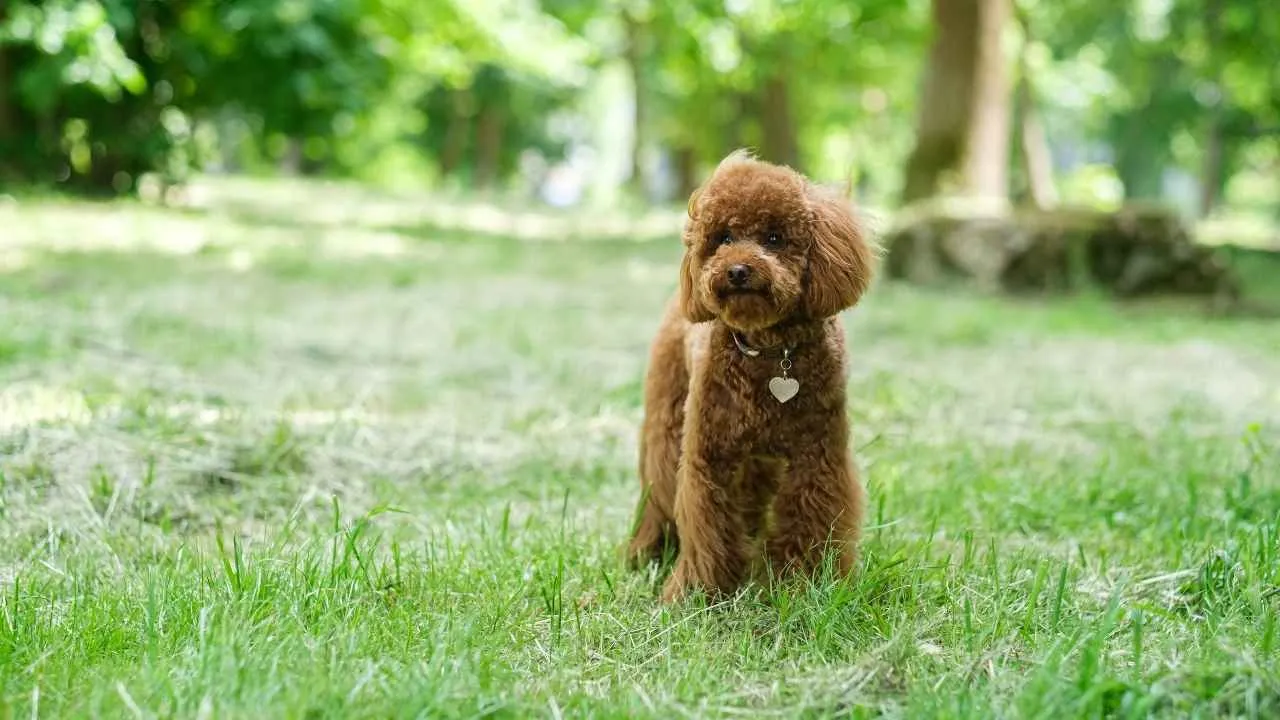
The Standard Poodle is one of the smartest dog breeds, ranking second only to the Border Collie and often considered the smartest overall. AKC mentions that they were originally called the “Caniche” in France, meaning “duck dog.” It was bred centuries ago to retrieve waterfowl.
Today, poodles remain highly trainable and need plenty of mental stimulation to stay engaged. They are friendly and affectionate with family members, open to strangers, and good with other dogs.
Poodles are also remarkably adaptable, handling changes in daily schedules, living conditions, or noisy environments with ease. Their distinctive curly coat is hypoallergenic and sheds very little, making them a great option for people with allergies while maintaining their elegant, athletic appearance.
Why Poodles Make Great Service Dogs:
They make excellent PTSD service dog partners, offering calm support during anxiety episodes.
As highly intuitive therapy dogs, they help individuals process emotional challenges.
Survivors of military sexual trauma benefit from their gentle, reassuring presence.
Because of their intelligence and focus, dogs are trained quickly and effectively to assist with mental health needs.
Their adaptability makes them an ideal service animal for navigating public areas and busy environments.
5. Border Collie
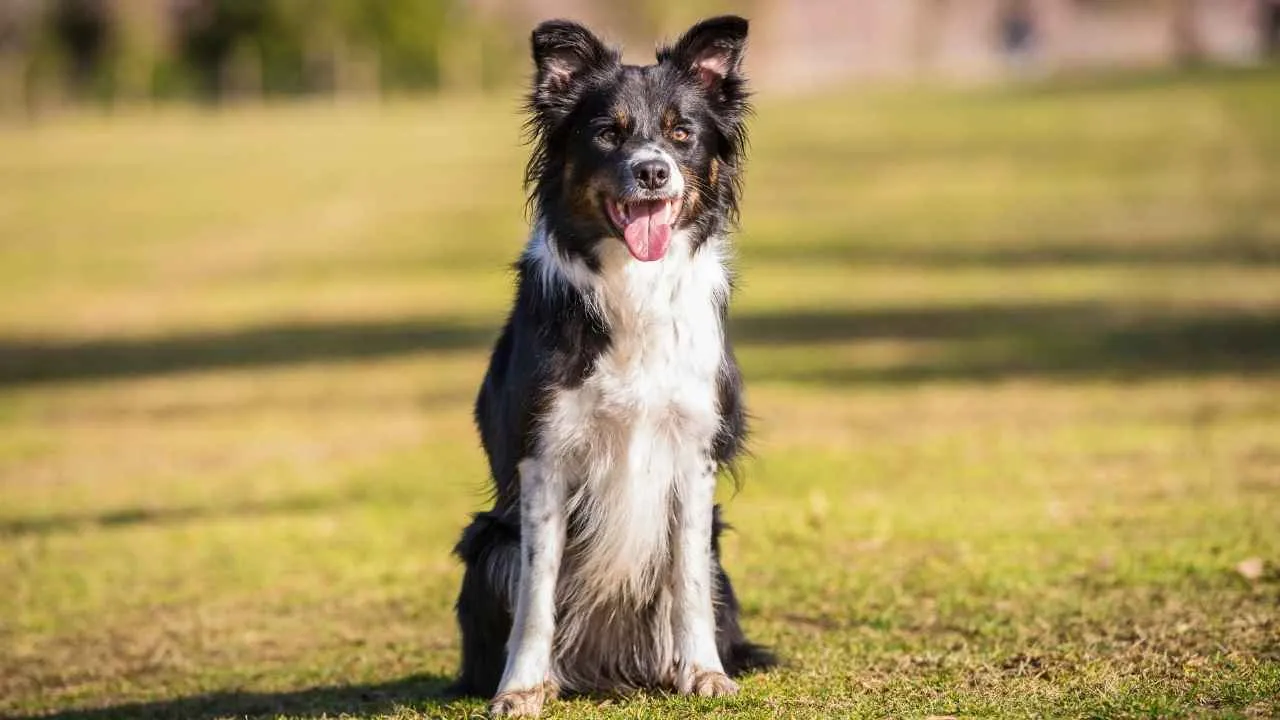
The Border Collie is a highly intelligent and energetic herding dog known for its agility and sharp focus. Medium-sized and muscular yet nimble, this great breed was originally developed to manage livestock with precision and speed.
Their famous “herding eye” reflects their intense concentration, while their variety of coat types and colors highlight their working heritage. Border Collies thrive on activity and mental stimulation, needing a job to feel fulfilled.
Without purposeful tasks, their boundless energy can be overwhelming, as they are natural workers who like to stay busy for long periods.
Why Border Collies Make Great Service Dogs:
Their intelligence makes them capable of learning complex support skills like most service dogs.
They can be rescue dogs in emergencies, alerting or guiding their handler when needed.
Border Collies are the best fit for handlers who can match their energy and provide ongoing training.
They are able to focus on a job, performing daily support tasks reliably.
Their loyalty and dedication make them a great breed for individuals needing consistent assistance.
6. Doberman Pinscher
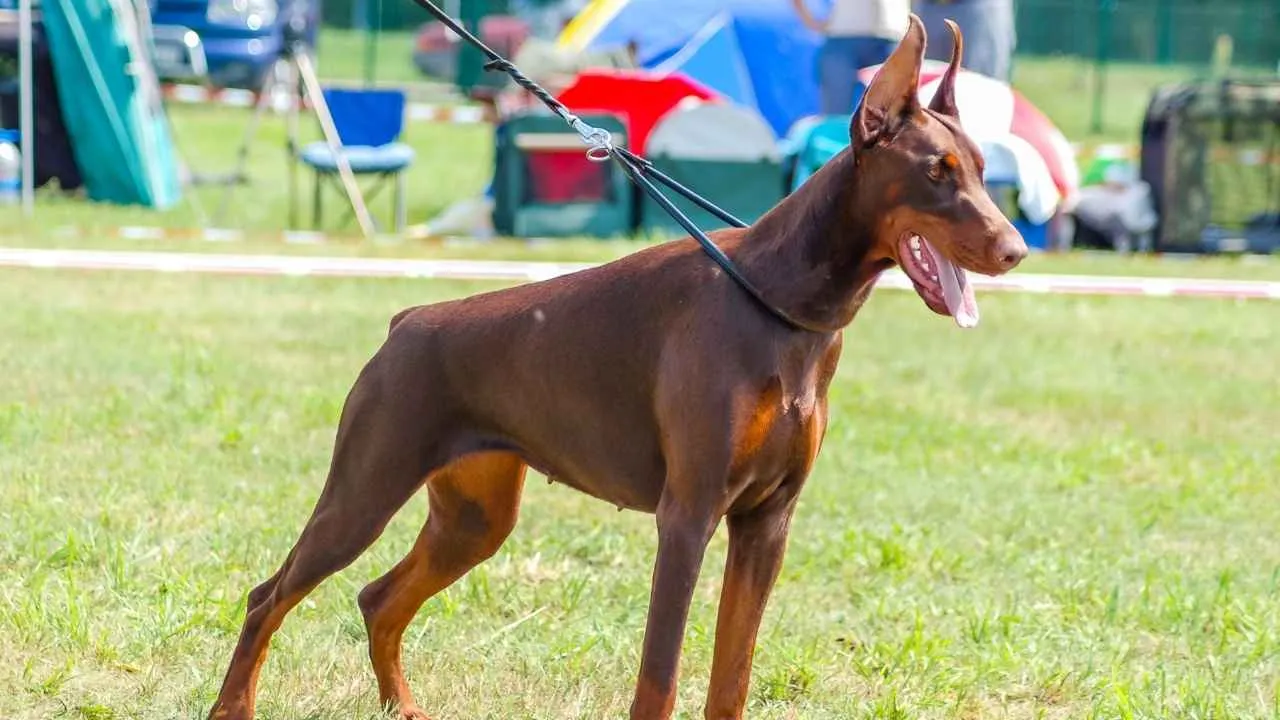
Britannica says that the Doberman Pinscher is a sleek and powerful dog developed in Germany around 1890 by Karl Friedrich Louis Dobermann. Known for its smooth coat—seen in black, blue, fawn, or red with distinctive rust markings—this breed combines strength, elegance, and agility.
Dobermans are highly intelligent, loyal, and deeply devoted to their families, often earning the nickname “velcro dogs” because of their tendency to stay close to their owners. They are naturally alert yet affectionate and thrive when they have a purpose and meaningful interaction with their people.
Why Doberman Pinschers Excel as Service Dogs:
They are highly intelligent and quick to learn new skills.
Their strong loyalty creates a deep bond with their handler.
They remain focused and alert, making them reliable in various environments.
Dobermans are gentle yet protective, offering reassurance without unnecessary aggression.
Their affectionate nature makes them comforting companions for emotional support.
7. Boxer
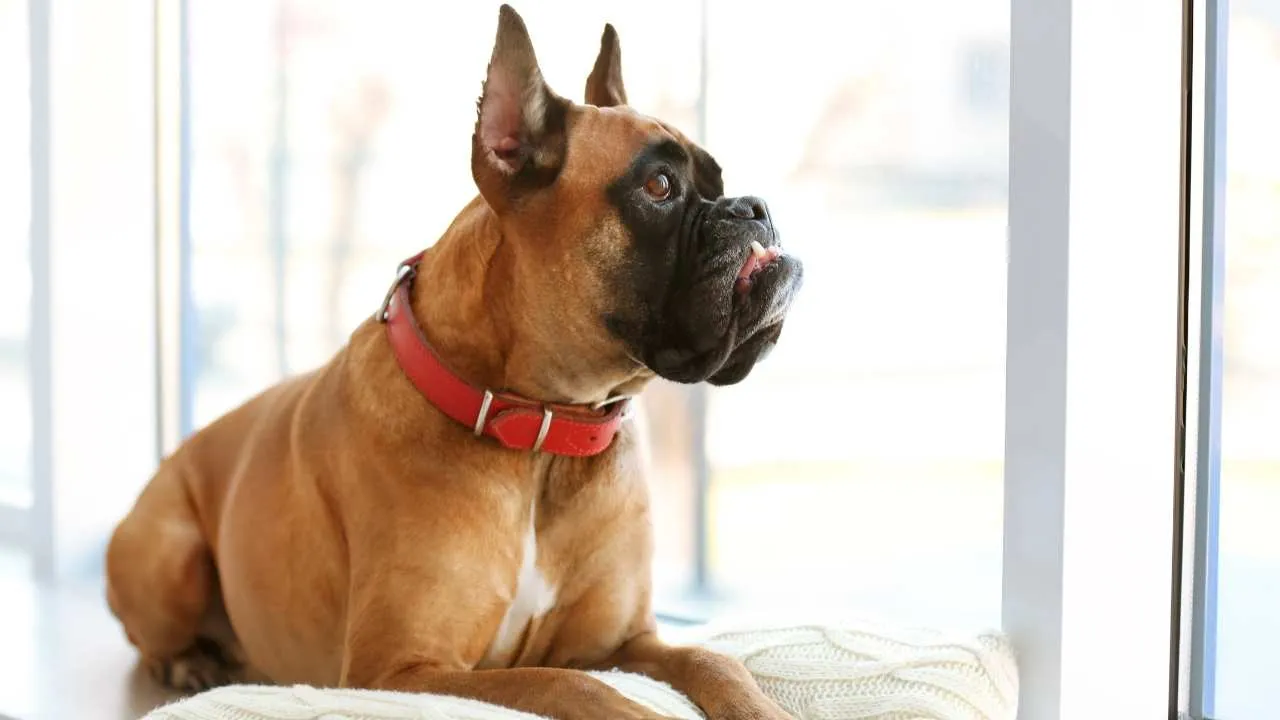
The Boxer is a bright, athletic, and affectionate dog known for its loyalty and playful personality. Standing up to 25 inches tall for males, with females being slightly smaller, Boxers have a muscular build covered by a short, tight-fitting coat that comes in fawn or brindle, often with white markings.
Their expressive, dark brown eyes and wrinkled forehead give them a curious, alert look. Boxers are energetic yet patient, making them great with children and adaptable to family life. Known for their protective nature, they take on the role of guardian with courage while maintaining a friendly, approachable temperament.
Why Boxers Excel as Service Dogs:
They form deep bonds with their handlers, creating a strong motivation to help and stay attentive.
Boxers are intelligent and eager to please, making them easy to train for a wide range of tasks.
Their sturdy build allows them to assist with mobility and balance support.
They can sense subtle behavioral changes, which is helpful for detecting seizures or emotional distress.
With their calm yet alert demeanor, Boxers can provide deep pressure therapy to ease anxiety, PTSD triggers, and other emotional challenges.
Conclusion
Finding the right service dog is all about understanding the important factors that make a good match. Every person has unique needs, and while some prefer purebred dogs, mixed breeds can be just as capable and loving when given the right training and support. What matters most is choosing a dog with the right temperament, energy level, and willingness to work, so it can truly improve someone’s daily life.
For many veterans, survivors, and individuals with disabilities, partnering with a service dog can bring confidence, comfort, and independence. It’s also helpful to work with a trusted organization that understands the training process and can guide you through any other considerations involved. With patience and the right approach, the bond you build with a service dog can be life-changing.


